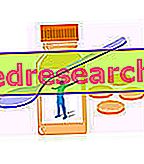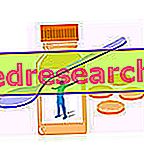Watch the video
X Watch the video on youtubeSinusitis is an inflammatory process, acute or chronic, of the nasal cavities.

Sinusitis is generally triggered by bacterial or viral insults, but allergies can also be the cause. The symptoms that characterize sinusitis are: nasal congestion (stuffy nose), halitosis, dyspnoea, fever, swollen eyes, rhinorrhea and cough.
What to do
- Perform frequent nasal washes with saline: saline solutions are an effective remedy to remove mucus accumulated in the nasal cavities
- Use an ambient humidifier, useful for reducing the risk of sinusitis and respiratory tract infections
- Wash your hands often
- Don't put your hands in your mouth
- Sleep in the supine position, preferably with the headboard slightly raised: in this way, breathing is facilitated
- Blow your nose often on disposable tissues
- Drink plenty of fluids, especially hot ones
- Cover nose and throat before leaving home
- Avoid temperature fluctuations as much as possible
- Strengthen the immune system
- Stay in bed: rest is essential for complete recovery in a short time
- Use the fumigations
What NOT to do
- Attend polluted environments
- To smoke
- Drink alcohol
- Take medicines to treat sinusitis without a prescription
- Continue therapy with antihistamine drugs and corticosteroids for long periods
- Swallow the mucus
What to eat
- Follow a healthy and balanced diet, free from excess
- Take large portions of fruit and vegetables as foods rich in antioxidants (especially vitamin C and vitamin E)
- Drink hot liquids (broth, milk, tea), in order to dilute the mucous secretions, favoring their drainage
- Perform warm compresses on the face, useful for relieving facial pain that often accompanies sinusitis
What NOT to Eat
- Drinks containing alcohol: it seems that alcohol can worsen the swelling of the nasal mucosa
- Coffee and caffeinated beverages: it seems that these foods predispose the patient suffering from sinusitis to dehydration
Natural Cures and Remedies
The natural remedies for sinusitis set the goal of reducing inflammation of the sinuses. Natural treatments, unlike pharmacological ones, do not act directly on the cause, rather they are indicated to speed up healing, as a complement to synthetic drugs.
- The fumigations are simple home remedies, very useful to relieve pain and promote mucus drainage. The most natural active ingredients to dissolve the mucus are extracted from:
- Basil ( Ocimum basilicum L.) → used, in this case, for its anti-inflammatory properties
- Eucalyptus (Eucalyptus globulus Labill) → anti-inflammatory, expectorant, balsamic properties
- Mint ( Mentha piperita ) → balsamic, decongestant, anticatarrali properties
- Rosemary ( Rosmarinus officinalis ) → balsamic, expectorant, antioxidant properties
- Bitter orange ( Citrus aurantium L. var. Amara ) → disinfectant, anti-inflammatory, decongestant properties
- Other natural remedies:
- Propolis → antimicrobial, antifungal, antiviral activity
- Echinacea ( Echinacea angustifolia ) → antiviral, immunostimulant, antibacterial, anti-inflammatory properties
Pharmacological care
The antibiotic drugs most used for the treatment of sinusitis act directly on the triggering cause:
- Antibiotics (eg. Amoxicillin, Azithromycin, Moxifloxacin): indicated to remove the bacterium involved in the infection. The choice of a drug rather than another depends on the pathogen responsible for sinusitis.
To reduce healing time, the patient with sinusitis can take:
- Nasal decongestants (to be used for a short period): pseudoephedrine (eg Actifed, Actigrip), Oximetazoline hydrochloride
- Spray corticosteroids: fluticasone (eg avamys), triamcinolone (eg kenakort, Triamvirgi), beclometasone (eg Rinoclenil)
- Corticosteroids to be taken orally or intravenously: methylprednisolone (eg Depo-medrol, MEDROL, urbason), Prednisone (eg Deltacortene)
- Antitussives: if sinusitis was also accompanied by cough. The drug most used for this purpose is dextromethorphan (eg. Aricodyltross)
- Antihistamines: desloratadine (eg. Neoclarityn, azomyr, aerius), Azelastina (eg Lasticom, Allespray), hydroxyzine (eg Atarax). Indicated to reduce sinusitis symptoms in the context of allergies
Prevention
- Avoid contact with individuals affected by flu or cold as much as possible
- Keep the environment at the right humidity and temperature
- Managing allergic phenomena: allergy, as we know, is a possible risk factor for sinusitis
Medical treatments
In cases of particularly severe sinusitis, it is necessary to intervene through a targeted surgical intervention, aimed at cleaning and draining the nasal "clogged" sinuses. For this purpose the following are indicated:
- surgical repair of the deviated nasal septum
- surgical excision of nasal polyps (another possible factor causing sinusitis)



